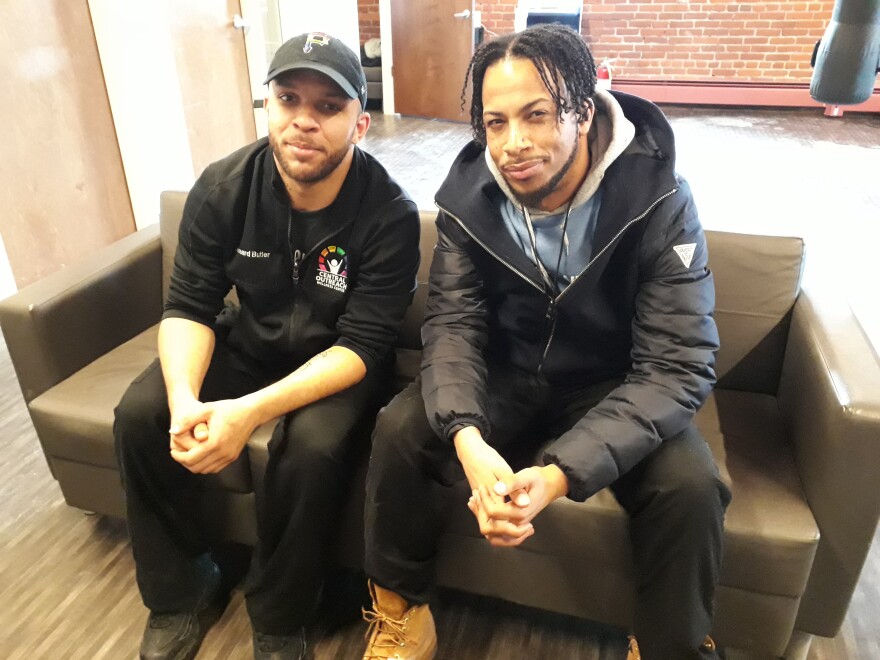Most overdose fatalities in Pennsylvania continue to be opioid related, but deaths associated with methamphetamine and other stimulants are also on the rise, according to a new analysis from the University of Minnesota State Health Access Data Center.
Yet nationally and locally, the conversation continues to focus almost exclusively on opioids, overshadowing those battling addictions to other drugs such as methamphetamine.
One of the handful of organizations providing resources specifically aimed at meth user health is Prevention Point Pittsburgh, a nonprofit that specializes in reducing the harm of drug use.
Right now, Prevention Point distributes informational health tip packets to meth users. Advice includes making sure to eat, sleep and drink water before, during and after using the drug. Meth suppresses appetite and keeps people awake for days, sometimes to the point where they can become psychotic.
90.5 WESA's The Confluence hosted a deeper conversation Wednesday with reporter Sarah Boden and others on how meth use is especially damaging for Pittsburgh's LGBT+ community. Check it out here.
Prevention Point executive director Aaron Arnold said he would like to provide more comprehensive methamphetamine services.
For example, the organization distributes sterile needles, which are used mostly for opioids, so people don’t contract blood-borne diseases through shared syringes. Arnold said having clean pipes for meth smokers is just as important.
“If you don’t have a proper smoking device and you end up blistering your lips,” said Arnold, “it’s very possible that you could spread Hepatitis C or a bacterial infection if you’re passing that pipe around the room.”
But Arnold said, unlike opioids, there is neither funding nor public support for harm reduction services for meth users.
“These days opioid-related funding seems to be trumping all other funding,” said Sheila Vakharia, policy manager at New York City-based Drug Policy Alliance.
For instance, last year the state of Pennsylvania hosted a hackathon to find new strategies on combating opioids. And the U.S. Department of Labor issued grants for reemployment services to people with a history of opioid use, but not other drugs.
It often takes years for public health researchers to gather data on the extent of drug use, though one early indicator on meth's rise comes from UPMC's emergency departments. Between 2016 to 2018 the number of methamphetatmine-related visits jumped from 15 to 77, a 413 percent increase.
"I know from experience that the number is likely higher than 77, but the causative agent is often not identified or included in the diagnosis," said Mike Lynch, head of UPMC'S Pittsburgh Poison Center. "Assuming the underrepresentation is relatively consistent overtime, the relative increase should be the takeaway.”
Part of the reason for the lack of resources might have to do with how society views meth users. While all narcotics are stigmatized, said Vakharia of the Drug Policy Alliance, meth users are seen as particularly unsavory and are often depicted as disheveled, with bad skin and teeth.

“But I think there is also a unique stigma associated to the behaviors associated with being under the influence of methamphetamine, being over stimulated,” she said. “Sometimes people who have been using methamphetamine for days are sleep deprived, and thereby see things or hear things that aren’t there.”
The process of treating substance use disorder, whatever the substance, is the same. Experts say any intervention needs to address a person’s physical, mental and emotional health. However, different drugs can affect people's lives in different ways, and treatment programs must address that.
Lenny Butler is a Hepatitis C outreach coordinator at Central Outreach Wellness Center, located on the North Side. He’s also recovering from a meth use disorder. Butler said, like many meth users, he started using the drug as a byproduct of sex work because it heightens libido.
“There was a clientele that would offer me ... more money to actually do the drugs with them,” said Butler.
Butler and others say a person in recovery from meth often needs to address how they experience and feel about sex, which can be a trigger for relapse. It’s not uncommon for someone engage in activity they wouldn’t normally participate in while sober.
Butler said that’s part of the reason he’s never attended a Narcotics Anonymous meeting
“We can’t sit there and talk about all the sex we had,” he said.
Dr. Stacy Lane, founder of Central Outreach, estimated while about 10 percent of her patients use opioids, about one-quarter are actively using meth. Lane said she’s frustrated by a general lack of medical options for her patients. For instance, there aren’t any FDA-approved medications to help with meth cravings and withdrawal.
“We can control the opiate addiction with methadone or suboxone, but the crystal meth, we have very little tools, from a medical standpoint, to treat the addiction,” said Lane.
DeAndre Hughes also works with Lane as a medical assistant at Central Outreach, and said he has personally experienced the destruction of meth.
“It’s evil. It took the love of my life away. Killed himself. Lost his mind and killed himself,” said Hughes. “And the sick part is I still continue to use.”
Hughes said he’s looking for a rehab program and is excited to start treatment.





